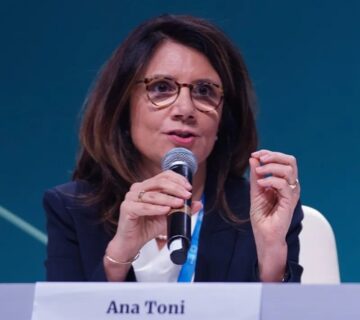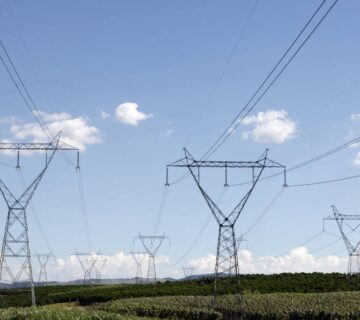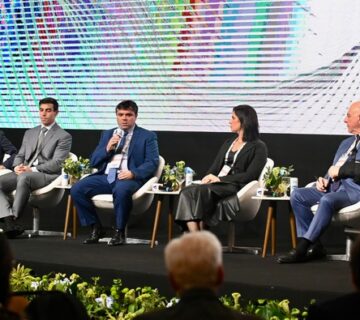Why were the results of Brazil’s latest power tender so modest?
The results of Brazil’s latest electric power tender were modest or even below expectations, according to local market players and experts.
Carried out on Thursday by Aneel, the auction attracted investments of around 3.07bn reais (US$567mn), which will enable the construction of 40 plants totaling 861MW of power capacity to supply electric energy as of 2026.
Contracts were negotiated for hydro, wind, solar and thermal generation that use biomass and solid waste as fuel.
On the buying side, five distributors presented demand to acquire the energy offered by the participating plants: CELPA, CEMAR (Equatorial Energia Maranhão), CPFL Jaguari, CPFL Paulista and Light.
João Carlos Mello, president of consultancy Thymos Energia, told BNamericas that the outcome reflects the uncertainties related to Brazil’s economic growth prospects, as well as the impacts of the expansion of the free power and distributed generation markets, which directly affect distribution concessionaires.
“The big expansion buyer is not so much the distributor anymore. Now this will be divided between the [backup energy] capacity auctions and the free market,” he said.
Mello pointed out that thermal plants will have a new opportunity in the backup energy tender in December, while solar and wind power projects have plenty of business options in the free market.
The president of local power distributors association Abradee, Marcos Madureira, told BNamericas that the result did reflect the economic context, but also the situation of the power utilities, which are still over contracted.
“The scenario of over contracting is expected to change as the Brazilian government holds specific tenders for backup capacity, allowing the energy ballast, which today is supported only by the regulated market, to fall on the free market as well,” he said.
The views of local associations regarding the tender are outlined below:
HYDROELECTRIC
Only one hydroelectric project sold energy at the A-5 tender. The 6.1mn MWh traded will come from an existing plant in Santa Catarina state, so no investments were generated. The contract has a duration of 25 years.
The average price of the energy was 174 reais/MWh.
Paulo Arbex, the president of Brazil’s small hydroelectric plant association (Abrapach), told BNamericas he was “perplexed” about the result of the auction, which did not contract new (greenfield) undertakings.
“We’ll talk to the MME [mines and energy ministry] to better understand what’s happening, because the government has always recognized the importance and suitability of small hydro plants in the energy matrix,” he said.
SOLAR POWER
The PV solar projects contracted are located in the states of Ceará (96.2MW), Piauí (60MW) and São Paulo (80.2MW). Some 20 new solar plants were awarded, totaling 236MW of generation capacity and involving private investments of more than 901mn reais until 2026.
The energy commercialized amounted to 4.0mn MWh, at an average price of 167 reais/MWh, for a 15-year period.
According to Brazil’s PV solar power association Absolar, although the auction has increased the contracting of solar and wind, the volume of more expensive sources (biomass) contracted was higher, which is a warning sign for the federal government and consumers.
“The contracted volume of PV solar power was very low compared to the high number of projects participating in the auction,” said the president of Absolar, Rodrigo Sauaia.
“This led to great competition between entrepreneurs, producing average prices below the reference level for PV solar in Brazil, which demonstrates the high competitive capacity of the source, even in times of macroeconomic turbulence,” he added.
WIND POWER
Some 11 wind projects in Bahia, Rio Grande do Norte and Pernambuco, totalling 161MW of installed capacity and demanding 633mn reais in investments, sold 3.7mn MWh for 15 years. The average sale price was 160 reais/MWh.
“We sold less than we usually sell in regulated auctions, but we already expected it to be a small auction,” Élbia Gannoum, the president of local wind power association Abeeólica, said.
“It should be noted that wind power, in terms of the average sale price, was the source with the lowest cost, showing great competitiveness. Considering the scenario of low demand already expected, I believe we had a good result,” she said.
WASTE-TO-ENERGY
The URE Barueri WTE project in São Paulo state sold 2.1mn MWh for a period of 20 years, at an average price of 549 reais/MWh and requiring a 520mn-real investment.
The president of the Brazilian waste energy recovery association (Abren), Yuri Schmitke, said that the “result was positive and the sector is preparing to participate in other auctions.”
BIOMASS
Seven biomass-fuelled thermal plants in Alagoas, Minas Gerais, Mato Grosso, Mato Grosso do Sul and São Paulo states traded 9.3mn MWh for an average price of 271 reais/MWh. The capex foreseen is 1.01bn reais.
BNamericas contacted the local thermoelectric power generators association Abraget, but it declined to comment on the tender results.
Fonte: BNamericas
01/10/2021







No comment